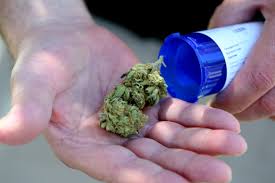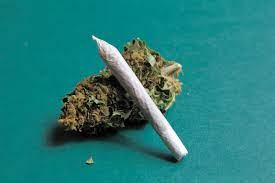Understanding the Dynamics of Panic Attacks While High

Panic attacks while under the influence can be distressing and overwhelming, often exacerbating the effects of substance use. Understanding the interplay between panic attacks and being high is crucial for effective management. When individuals consume cannabis or other substances, they may experience heightened anxiety due to various factors such as the potency of the substance, individual tolerance levels, and underlying mental health conditions.
Identifying Triggers and Warning Signs
Recognizing triggers and warning signs is fundamental in preventing and managing panic attacks while high. Common triggers may include:
- Environmental Stimuli: Loud noises, crowded spaces, or unfamiliar surroundings.
- Psychological Factors: Stress, worry, or negative thought patterns.
- Physical Sensations: Rapid heartbeat, shortness of breath, or dizziness.
Being mindful of these triggers enables individuals to anticipate and mitigate the onset of panic attacks.
Strategies for Managing Panic Attacks While High
1. Deep Breathing and Relaxation Techniques
Implementing deep breathing exercises and relaxation techniques can help alleviate symptoms of panic attacks. Encourage slow, deep breaths to promote relaxation and reduce physiological arousal.

2. Grounding Techniques
Grounding techniques involve redirecting focus to the present moment to alleviate feelings of dissociation and anxiety. Techniques such as mindfulness, sensory grounding, and visualization can help individuals regain a sense of control.
3. Establishing a Safe Environment
Creating a safe and supportive environment is essential for managing panic attacks while high. Ensure individuals have access to a quiet, comfortable space where they feel secure and can seek assistance if needed.
4. Seeking Professional Help
Encourage individuals to seek professional assistance from healthcare providers or mental health professionals for comprehensive assessment and treatment. Therapeutic interventions, including cognitive-behavioral therapy (CBT) and medication management, may be beneficial in addressing underlying anxiety disorders.

Conclusion
In conclusion, mastering panic attacks while under the influence involves understanding triggers, implementing coping strategies, and seeking appropriate support. By employing proactive measures and fostering a supportive environment, individuals can effectively manage panic attacks and mitigate their impact on overall well-being.
Frequently Asked Questions (FAQs)
Q: Can cannabis or other substances cause panic attacks?
A: Yes, consuming cannabis or other substances can increase the risk of experiencing panic attacks, especially in individuals predisposed to anxiety disorders or those consuming high doses.
Q: How long do panic attacks while high typically last?
A: The duration of panic attacks while high can vary depending on factors such as the potency of the substance, individual tolerance levels, and the effectiveness of coping strategies employed. Generally, panic attacks may last anywhere from a few minutes to several hours.
Q: Are panic attacks while high dangerous?
A: While panic attacks themselves are not life-threatening, they can be distressing and debilitating, particularly when combined with the effects of being under the influence of substances. It is essential to seek support and implement coping strategies to manage panic attacks effectively.
Q: What should I do if I experience a panic attack while high?
A: If you experience a panic attack while high, try to find a quiet and comfortable environment, practice deep breathing and relaxation techniques, and reach out to a trusted friend or healthcare professional for support. It's crucial to avoid self-medicating or exacerbating the situation with additional substances.
Q: Can panic attacks while high be prevented?
A: While it may not be possible to completely prevent panic attacks while high, individuals can reduce their likelihood by practicing stress management techniques, avoiding triggering environments or substances, and seeking professional help for underlying anxiety disorders.
